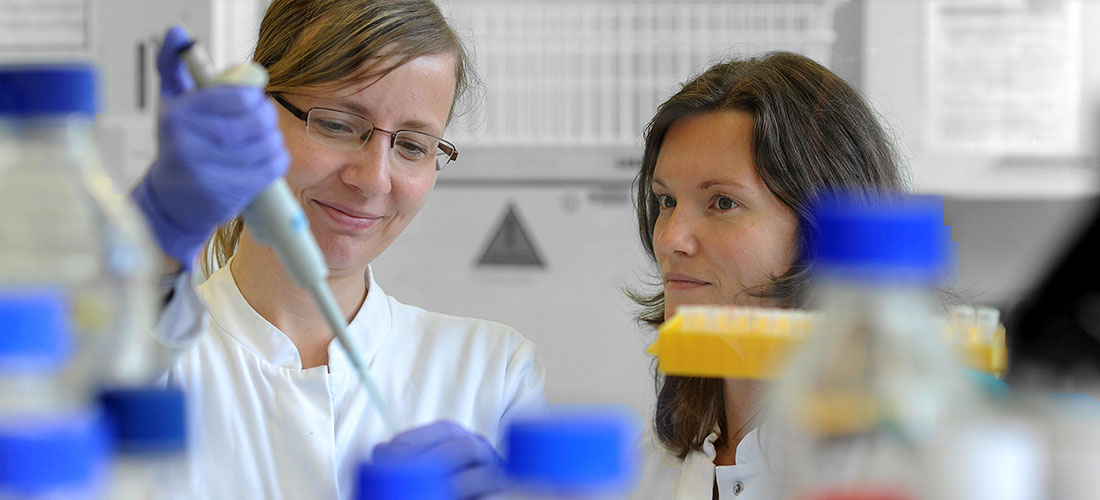C02: Uncovering neuroblastoma cell plasticity in embryonic grafts using a universal transcription factor network
Neuroblastoma uses developmental programs to generate tumor cells that resemble not one but several differentiation stages of the normal sympathoadrenal lineage in the developing fetus. Intriguingly, neuroblastoma cells can interconvert between at least two distinct transcriptional states in vitro and respond to developmental signals when grafted into embryonic tissues. Such phenotypic plasticity and sensitivity to exogenous signals may provide neuroblastoma with the potential to evolve by non-genetic mechanisms under selective conditions such as treatment or cellular niches. Project C02 proposes to experimentally probe the diversity of possible neuroblastoma cell states and compare them to their normal counterparts within one universal transcription factor (TF) network. We hypothesize that such a network-based comparison will pinpoint aberrations that prevent normal differentiation and allow cells to plastically change their transcriptome. Using published single-cell transcriptomics data, we will generate our network for a large segment of the human sympathoadrenal lineage to build a more powerful tool to analyze progressive gene expression changes than existing regulatory network approaches which reflect only an individual cell type (Task 1). To then identify the range of cell states that a complex tissue microenvironment can induce, we will engraft human neuroblastoma cells into the chicken embryo model and subsequently analyze them using single-cell transcriptomics (Task 2). As our TF network will be built to unite factors from all cell states, we will be able to analyze individual cells from these xenografts, primary tumors and normal development within one representation space. This will allow us to precisely compare transcriptional dynamics to reveal deregulated factors that mediate abnormal cell state transitions (Task 3). Our approach can also reveal plasticity inducers that are not transcription factors, such as signaling pathway components, since their altered upstream function will impact specific parts of the network. We will then use grafting experiments to validate the role of candidate factors in abnormal cell state changes and assess their potential as therapeutic targets (Task 4). Our strategy will address how non-genetic tumor evolutionary processes cause intratumor heterogeneity and investigate whether we can interfere with these dynamics to arrive at promising treatment approaches.
PhD positions and place of work: 2
1 wet-lab with interest in bioinformatics (PI Stefanie Grosswendt, BIH@Charité, Berlin)
1 computational (PI Laleh Haghverdi, MDC/BIMSB Berlin)



